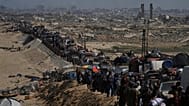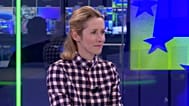This week the UN Subcommittee on Prevention of Torture raised concerns about the treatment of migrant children in Bulgarian detention centres. But the report will stay confidential - unless Sofia decides otherwise. Not good enough, says UN expert advisor Iveta Cherneva
 ADVERTISEMENT
ADVERTISEMENT
Members of the UN Subcommittee on Prevention of Torture undertook an important visit to Bulgaria from October 24 to 30.
The trip coincided with the UN Special Rapporteur on minority Issues gearing up to pay a flagship visit to the United States to review human rights violations against minorities.
The striking similarity between both visits lies in what they betray: the limitations of the UN human rights system, in terms of both relevance and impact.
UN admits it can't make Sofia divulge the whole truth about migrant abuse
The UN anti-torture mechanism is concerned with the treatment of migrant children in detention in Bulgaria. But they can’t make the report public because first they need the Bulgarian government’s agreement.
I supported the delegation's work as an expert consulted by the UN Subcommittee, and I would like to share my observations and concerns with you.
A large number of migrants and asylum seekers in Bulgaria are detained in special centres where they face inhumane conditions that may, in some instances, amount to torture.
The UN delegation also visited police stations and prisons, and conducted confidential interviews with detainees. The report arising out of the visit assesses the Bulgarian authorities’ mistreatment, even torture of migrant children in these detention centres.
But it's confidential at the moment, and that reveals one of the limitations of the UN. For the report to be made public, we need to press the Bulgarian state to lift the confidential status so that we can all see the full extent of mistreatment the visit documented.
Not agreeing to make the report public would signal that the Bulgarian government is covering up horrific crimes. The public has the right to know, and the Bulgarian government cannot hide behind the argument that the report is for their eyes only.
Otherwise, why was there a visit to begin with? Was it just meant to show that Bulgaria is cooperating, while we aren't able to see what’s really going on?
Special rapporteur's trip to the US is pointless
On November 5, the same day the UN Subcommittee released its statement on the Bulgarian findings, it was also announced that the UN Special Rapporteur on Minority Issues would be visiting the US from November 8 to 22.
In the US visit, the Special Rapporteur ought to be examining the exact same issues that the UN torture mechanism focused on in Bulgaria: the mistreatment of migrant children in detention, especially on the southern border, where the Biden administration and Vice President Kamala Harris have not addressed the Trump-era practice of keeping migrant children in cages.
That has to be the absolute priority for the UN Special Rapporteur on Minority Issues. But just like with Bulgaria, we're unlikely to get anywhere close to a meaningful review of value.
The trip's formally stated priorities don’t cover any of the biggest human rights issues faced by minorities in the US, like the killing of African Americans by the police. Instead, the trip appears to be focused on softer matters like online hate speech.
When the victims are children from vulnerable populations, the UN should not be able to close its eyes. In spring, on the anniversary of George Floyd’s murder, I urged the US government to allow a UN delegation to investigate the mistreatment of black people in America by the police, as a candidate for the UN Working Group of Experts on People of African Descent.
The Special Rapporteur’s visit to the US will not be of any value if the government has been able to limit and exclude from the scope the biggest mass scale minority rights violations.
At the press conference due to take place on 22 November in New York, the media has to be asking the elephant-in-the-room question: why are we are being fed the soft issues instead?
States need to feel the pressure
These two major UN human rights-related visits illustrate how the system is always constrained by the need for governments' permission. Whether that relates to the scope of a visit, which allows the US to conveniently cut out the most important issues, or the shape of access to a report, which allows the Bulgarian government to keep the UN torture report secret from the public.
Both governments have to be pressed on the need to make room for effective UN human rights visits. It is now on the media and civil society to press on these issues, as the UN human rights procedures again demonstrate their obvious limitations, and lack of relevance and impact, as usual.
Iveta Cherneva is a Bulgarian author focusing on security policy, human rights and sustainability. She has worked at five UN agencies over the course of 10 years and was a 2020 finalist for the post of UN Special Rapporteur on Freedom of Speech.














